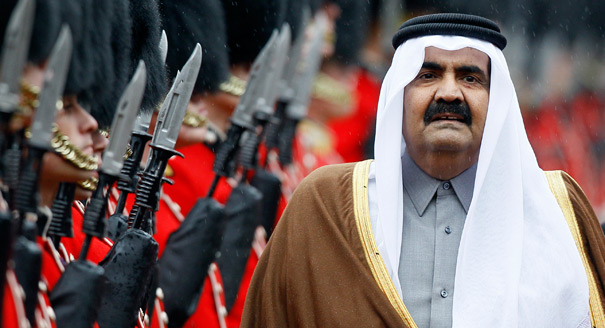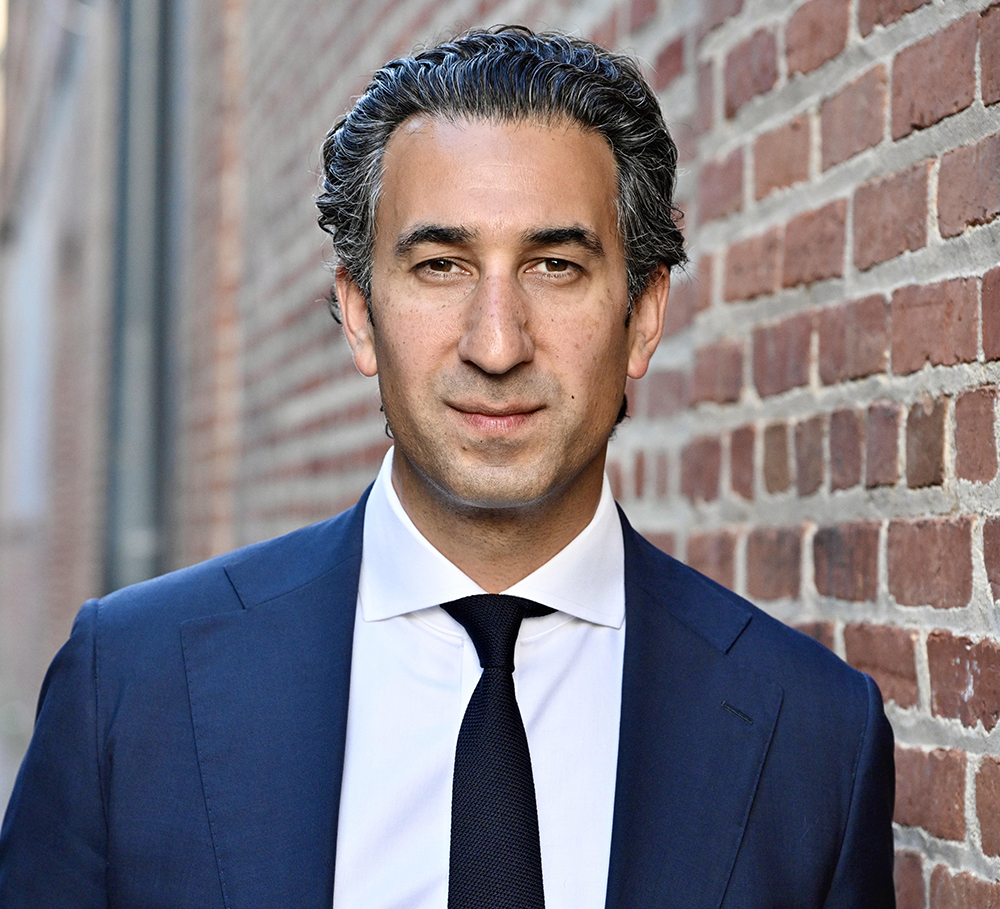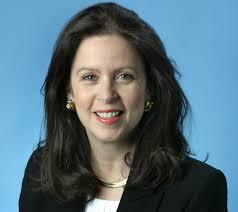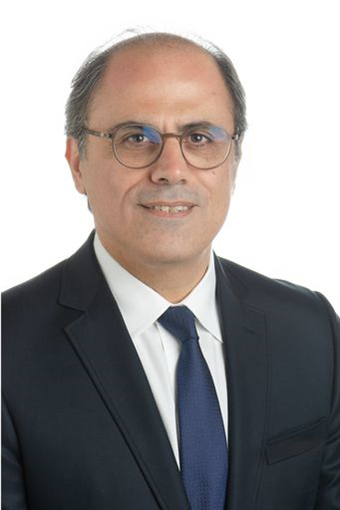The uprisings showed that foreign military intervention rarely produced democratic breakthroughs.
Amr Hamzawy, Sarah Yerkes

Source: Getty
While Qatar’s foreign policy is not free from important contradictions, Doha wields significant influence in the emerging Middle East and can play a positive role in helping countries in transition.
Source: Moyen-Orient
Qatar has played a foreign policy role far beyond its modest size. In past years, Qatar has led mediation efforts stretching from Western Sahara to Yemen. And since the emergence of the Arab Spring, Doha has used its media sector and its financial and political clout to back rebels and opposition movements in numerous Arab countries. Thanks in large part to the policies of Sheikh Hamad bin Khalifa, Qatar is now a regional powerhouse with comparable influence to much larger countries in the Middle East.
After unseating his father in a bloodless coup d’état in 1995, Sheikh Hamad set his country on a course based on security, prosperity, and a sustainable economic future. Having drawn lessons from the Iraqi invasion of Kuwait in 1990, Sheikh Hamad was convinced that the security of small Gulf states ultimately depended on the United States. Qatar thereby began a shift from its traditional reliance on Saudi Arabia—which proved useless for Kuwait in 1990—toward the building of direct military relations with the United States.
As a former defense minister, Sheikh Hamad was experienced in establishing military cooperation with key foreign partners, and as the country’s new emir, he oversaw a blossoming relationship with the United States. Two large American bases were established in Qatar: the Al Udeid Air Base , a forward headquarters of the U.S. Central Command , which directed the wars in Afghanistan and Iraq; and Camp As Sayliyah, which contains the largest American prepositioning base outside of the continental United States.The relationship has grown so close that the United States has also considered moving the U.S. Navy’s Fifth Fleet from troubled Bahrain to a more stable Qatar. Irrespective of the outcome of this policy item, Sheikh Hamad has still ensured his country’s security, while gaining the confidence to build an independent and dynamic foreign policy.
Beyond ensuring domestic security, the royal family’s success in diversifying the country’s economy has been central to Qatar’s growing influence in the Middle East. After falling oil prices placed significant pressure on the country’s generous welfare system in the 1980s, the Qatari ruling family became convinced that economic diversification was required to maintain its grip on power.
Qatar was not always the poster child for economic diversification. Dubai, Abu Dhabi, and Bahrain were all outpacing Doha before it embarked on reforming its own economy. Each of these small city-states was carving out its own niche markets while attracting substantial levels of foreign investment. Dubai in particular had proved that even a small Gulf state could develop a global brand as an international hub for investment, services, transportation, and a multitude of other sectors.
But Qatar vowed to make up for lost time. Besides investing in gas exploration and export, Sheikh Hamad recognized that attracting investment required building a regional and international profile. To that end, he has gone a long way in developing Qatar’s global brand.
Qatar’s economic success and independence also benefited from a bit of good fortune. The first phase of exploration in the North Pars Gas Field in 1991, an area in the Persian Gulf located within the territorial waters of Qatar and Iran, proved that the field was the world’s largest for natural gas. After initial plans to export the gas via pipeline to the United Arab Emirates, Oman, and Kuwait were met by resistance from neighboring Saudi Arabia, Qatar began investing heavily in liquefied natural gas facilities, in addition to securing global markets for gas exports. Long-term agreements to supply gas to Japan and other Asian countries were established, helping Qatar break free from regional constraints. Coupled with steadily rising oil and gas prices, Doha could now rely on huge revenues to build a vigorous and autonomous foreign policy.
But Qatar’s success was not limited to amassing financial wealth. Doha modeled its global brand after Dubai’s success, and the country invested heavily in infrastructure, presenting itself as a hub for education, sports, entertainment, and international trade and business. Standing out among the country’s many achievements, Qatar hosted the Doha Round of World Trade Organization talks in 2001, the Asian Games in 2006, and the Pan-Arab games in 2011. It will also host the FIFA World Cup in 2022 and has bid to host the Olympics. Doha has truly become a global capital.
Among Qatar’s most resounding successes was launching the Arabic-language news channel Al Jazeera on satellite television in 1996. Al Jazeera was modeled on Orbit satellite television’s joint venture between Saudi Arabia and the British Broadcasting Corporation (BBC). After the latter withdrew from the partnership due to Saudi censorship, many of the BBC-trained journalists were contracted by Al Jazeera.
Al Jazeera was established as a private satellite station owned and operated by various business interests, including members of the Qatari ruling family. Having learned from the failure of the Saudi experience, Qatar gave Al Jazeera a wide margin of editorial freedom. The decision proved remarkably successful, and Al Jazeera’s critical programs on Arab politics became quite popular. Its ability to address controversial socioeconomic and cultural issues gave the network credibility and a large and dedicated following.
But Al Jazeera’s success created problems as well. The news channel was a source of diplomatic tension for Doha, and the United States repeatedly pressured Qatar over Al Jazeera’s editorial stances on the U.S. invasion of Iraq. The problems extended to other Arab states: Saudi Arabia withdrew its ambassador to Qatar in 2002 after coverage criticized the country’s domestic affairs. Nevertheless, maintaining a policy of critical reporting demonstrated Qatar’s independence and raised the city-state's credibility among Arab populations.
The Qatari government complemented Al Jazeera’s strong media presence with an ambitious diplomatic agenda. By the early 2000s, Doha had established itself as the primary mediator of regional conflicts in places as varied as Western Sahara, Libya, Darfur, Palestine, Lebanon, Yemen, Ethiopia, and Eritrea. Qatar also developed working relations with both Israel and its declared enemies, such as Iran, Hamas, and Hezbollah.
By engaging a wide variety of countries and organizations, Qatar established a “neutral” profile in foreign policy that served its brand well. Doha’s growing reputation as a friendly nation protected the country from the fallout of regional conflict, boosted its role as a hub for regional economic development, and made the city-state an attractive destination for investment. Sheikh Hamad’s successful development of working relations with a multitude of countries and actors made Doha a regional power that the United States, the European Union, Russia, and other global players turned to for help in addressing regional issues.
However, Qatar’s political profile has changed dramatically. Since the Arab Spring first broke out in December 2010, Qatar’s reputation as an impartial country has been severely tarnished. In the past two years, Qatar has abandoned its neutral foreign policy in favor of actively encouraging and backing popular uprisings in Tunisia and Egypt and armed rebels in Libya and Syria. At the same time, Doha has supported the neighboring Bahraini government in its efforts against similar protests. And even Al Jazeera has imposed a virtual blackout on covering protests and government clampdowns in Bahrain despite enthusiastically reporting on the uprisings in North Africa and Syria.
Al Jazeera's role in captivating viewers across the Arab world fed the momentum of the Arab Spring. Arriving on the ground in Tunisia to cover the first Arab uprisings, Al Jazeera helped transfer the spark of rebellion from Tunisia to other Arab countries, most notably Egypt, Libya, Yemen, Syria, and Bahrain. Editors at Al Jazeera sympathized with Arab demonstrators, and Qatari authorities saw no foreign policy risk with siding against either Zine Abidine Ben Ali in Tunisia or Hosni Mubarak in Egypt.
Qatar soon found itself at the forefront of change that gripped the Arab world. While Saudi Arabia feared and resisted widespread calls for regional change, Qatar saw an opportunity to play a central role in the region’s future by choosing not to protect a dying Arab order.
Beyond Al Jazeera’s critical role in spreading Arab rebellions, Qatar began utilizing its political capital in other areas as well. In Libya, Doha pressed the Gulf Cooperation Council to take a firm stance against Muammar Qaddafi, later prompting the Arab League to suspend the country’s membership altogether. Qatar encouraged the Arab League to call on the United Nations Security Council to impose a no-fly zone over Libya, an unprecedented step in Arab diplomacy. Doha even sent its own warplanes to participate in the NATO mission, and its military has trained, financed, and armed the Libyan rebels.
This success in bringing regime change to Libya encouraged Qatar to pursue a similar course in Syria. Although Sheikh Hamad had invested heavily in Syria by cultivating excellent relations with President Bashar al-Assad in previous years, Doha was unable to translate this influence into the brokering of a deal between the Syrian government and early protesters. Much like Turkey, Qatar’s hopes were dashed as the Syrian government pursued a violent crackdown on protesters, while rebuking Qatari mediation overtures.
Since then, Qatari and Syrian relations have dramatically worsened. The Syrian government has designated Qatar an enemy, and the two countries have severed diplomatic relations. Qatar has worked to suspend Syria from the Arab League, funded and armed the Syrian opposition, and urged the international community to impose sanctions on Damascus or consider direct military intervention. In November 2012, Doha hosted a series of meetings that were crowned with the establishment of the latest opposition-in-exile body, the National Coalition of Syrian Revolutionary and Opposition Forces, the successor to the disappointing Syrian National Council. Qatar’s diplomatic positions have also put the country at loggerheads with Syrian allies such as Iran and Hezbollah, after having cultivated good relations with them in recent years.
Qatar’s foreign policy has come a long way since the outbreak of the Arab Spring. Along with Ankara, Doha has now abandoned its policy of neutrality altogether. But this new policy has also generated sharp accusations of hypocrisy. Qatar supported demonstrators in Tunisia, Libya, Egypt, and Syria, all while staunchly backing the Bahraini government in the face of similar protests. In so doing, Qatar has stood in solidarity with other GCC countries, including Saudi Arabia.
On the domestic front, Sheikh Hamad has maintained an authoritarian political system that leaves power in the hands of the very few. A new constitution was declared in 2003 and parliamentary elections were promised for 2013, but few expect any genuine democratic reforms to emerge as a result. Qatar’s backing of protesters elsewhere in the region has made the country vulnerable to accusations of double standards. And even Al Jazeera’s reputation has been battered. A number of prominent journalists, including the Beirut bureau chief, Ghassan Ben Jeddo, have left the organization altogether in response to Al Jazeera’s and Qatar’s contradictory foreign policy stances.
Qatar’s new diplomatic approach has left many people puzzled. Sheikh Hamad has pushed for democratic transformation and regime change in several Arab countries while simultaneously protecting the status quo in the GCC. Doha has a particularly strong relationship with the Muslim Brotherhood in Tunisia, Egypt, Libya, and Syria, but at the same time Qatar has offered economic assistance to governments in transition such as Egypt and Tunisia.
These policies are not as contradictory as they might appear at first glance. Qatar has crucial security concerns about instability in Bahrain and strong political interests with fellow GCC states, which explains why it has staunchly backed the government there. Meanwhile, in Arab states that seemed unlikely to survive calls for regime change, Qatar sided with pro-democracy uprisings.
Realpolitik may explain Qatar’s diplomatic positions in part, but the sentiments of Sheikh Hamad and Prime Minister Hamad bin Jassim play a part as well. Both men almost single-handedly control Qatari foreign policy, and they were likely personally moved by the images of popular protests against tyrannical governments in Libya and Syria. In these countries, a lack of overriding security considerations allowed both men to side with their natural inclinations.
Where the Qatari government held sympathies and key connections, Sheikh Hamad built on them. Al Jazeera, for instance, contained a strong Muslim Brotherhood component through many of its journalists and editors. And despite the country’s globalizing outlook, Qatar remains a conservative Islamic society and the only Wahhabi country in the Arab world other than Saudi Arabia. The Egyptian Islamist television personality Yusuf al-Qaradawi and the Libyan imam Ali al-Sallabi were longtime Qatar residents, and the country housed many Muslim Brotherhood supporters, who helped encourage regime change in various Arab states.
Many people have accused Doha of trying to build a pan-regional Muslim Brotherhood alliance, while others claim that Qatar is backing the Muslim Brotherhood in order to counter Saudi Arabia’s support of Salafis in various Arab states. But the more likely explanation is that Qatar is simply trying to build political influence in a new and dynamic Middle East. By assisting popular parties such as the Muslim Brotherhood in various Arab countries, Qatar can help build its influence in the region and back ruling parties that are likely to play a strong role in the coming years.
Qatar’s foreign policy has created new parameters in its relationship with major players in the region. Doha has become a critically important partner in helping the United States develop relations with new Islamist governments in several Arab states, and despite differences of opinion with Saudi Arabia on the Arab Spring, the two countries agreed on regime change in Libya and Syria and preserving the existing government in Bahrain. While Qatar and Saudi Arabia back different Islamist movements that are on the rise, both countries share a generally Islamist outlook.
Qatar’s relationship with Iran is complex. The two countries share the North Pars Gas Field, and Doha has little to gain from aggravating its larger neighbor across the Persian Gulf. Iran has proved unable to exert much influence in Bahrain, and U.S. military bases there have trumped any potential Iranian threat. But Qatar is still eager to contain any damage caused by its foreign policy positions on Bahrain and Syria and hopes to avoid escalating tensions any further with Iran.
In the Middle East, Qatar has become one of the most influential players in regional politics, which is a remarkable feat given the country’s small size. Qatar plays a role comparable in influence to countries as large as Saudi Arabia or Turkey.
Irrespective of whether Sheikh Hamad’s policy of regime change in Syria bears fruit, Doha will continue to support various countries where transitions are already under way. At home and within the GCC, Qatar will continue to back existing governments while limiting the calls for change to insignificant and largely cosmetic political reform. Its support for Syria’s rebels is set to continue. Support for various Muslim Brotherhood organizations will likely continue as well, although it might also help other groups if it finds political advantage in doing so.
Like every country, Qatar’s foreign policy is not free from important contradictions, but Doha wields significant influence in the emerging Middle East and can play a positive role in helping countries in transition. It has played an important role in the Arab uprisings so far; it has earned an obligation to follow through with more significant economic assistance in countries like Egypt and Tunisia and with serious conflict management and mediation efforts in countries in open conflict like Syria. Doha also needs to take domestic reform more seriously in Qatar and the broader GCC. Oil-rich monarchies in the Gulf have averted sweeping changes affecting the region thus far, but history will catch up with them too.
This article was originally published in Moyen-Orient magazine in French.
Carnegie does not take institutional positions on public policy issues; the views represented herein are those of the author(s) and do not necessarily reflect the views of Carnegie, its staff, or its trustees.
The uprisings showed that foreign military intervention rarely produced democratic breakthroughs.


Amr Hamzawy, Sarah Yerkes
Is Morocco’s migration policy protecting Sub-Saharan African migrants or managing them for political and security ends? This article unpacks the gaps, the risks, and the paths toward real rights-based integration.
Soufiane Elgoumri
A conversation with Karim Sadjadpour and Robin Wright about the recent protests and where the Islamic Republic might go from here.



Aaron David Miller, Karim Sadjadpour, Robin Wright
Fifteen years after the Arab uprisings, a new generation is mobilizing behind an inclusive growth model, and has the technical savvy to lead an economic transformation that works for all.

Jihad Azour
Baku may allow radical nationalists to publicly discuss “reunification” with Azeri Iranians, but the president and key officials prefer not to comment publicly on the protests in Iran.

Bashir Kitachaev